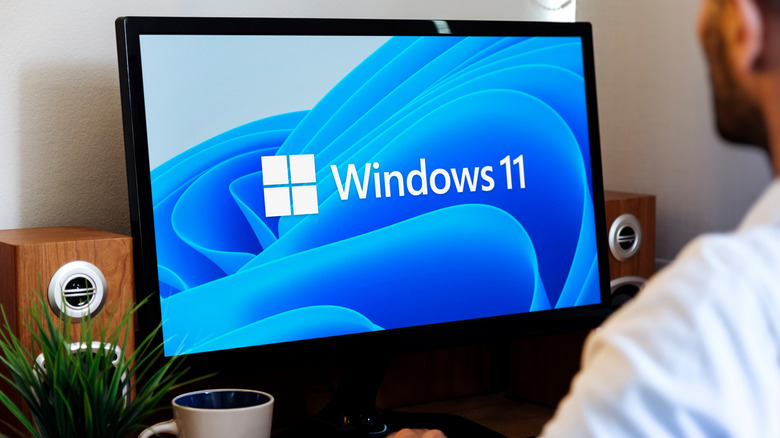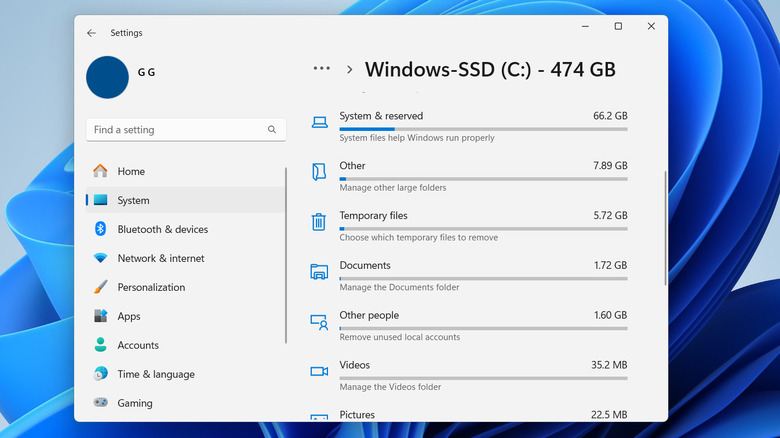How Much Space Does Windows 11 Take Up On Your Computer?
Windows 11 has come a long way since its launch, and with support for Windows 10 ending on October 14, 2025, you may be considering upgrading to Microsoft's latest operating system. Before making the switch, though, you'll need to ensure your computer meets the system requirements for Windows 11. One key factor to consider is the amount of storage the OS needs to store its system files. This is especially important if you have a laptop with only 256 GB or 512 GB of internal storage.
According to Microsoft, your computer needs at least 64 GB of storage space to install Windows 11. However, the exact amount of storage space the operating system will use depends on whether you're performing a clean installation or upgrading from Windows 10. Below, we'll explain how much storage you can expect Windows 11 to use in each scenario.
Windows 11's storage requirements can vary
A clean installation of Windows 11 typically uses less storage space because it doesn't have any leftover files or system clutter from previous installations. On average, a clean install of Windows 11 takes up around 27 GB for system files and about 3 GB for preinstalled apps. However, this is not a fixed number, which is why Microsoft recommends at least 64 GB of available storage. Interestingly, if you upgrade from Windows 10 to Windows 11, the OS can take more than 64 GB of storage.
Keep in mind that this is just the initial amount of storage that Windows 11 occupies. As you continue installing newer updates, the storage footprint will gradually increase. There isn't an exact number for how much additional space updates will take, as it changes based on several factors such as the version of Windows you're upgrading from, which system files are reused, which apps are already installed on your PC, and more.
The good thing is that Windows 11 actively manages storage and will try to free up space automatically when installing updates. That said, you can also take steps to free up storage space manually on your PC. Uninstalling unwanted apps, running the built-in Disk Cleanup tool, and moving large files to the cloud storage services are all effective ways to reclaim space.

